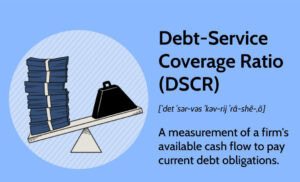Hamoraon.com – Understanding the DSCR Loan Down Payment Requirements When it comes to financing commercial real estate investments, understanding the loan requirements is crucial. One popular option for investors is the Debt Service Coverage Ratio (DSCR) loan. In this blog article, we will delve into the specific dscr loan down payment requirements for DSCR loans, providing you with a detailed and comprehensive guide.
Before we dive into the specifics, let’s briefly explain what a DSCR loan is. Essentially, a DSCR loan is a type of loan that measures the cash flow available to cover the debt payments on a property. It takes into account the property’s net operating income and compares it to the debt service payments. This ratio helps lenders assess the property’s ability to generate sufficient income to cover the loan payments.
What is a DSCR Loan?
A DSCR loan is a financing option commonly used by investors in commercial real estate. Unlike traditional residential loans, which primarily consider the borrower’s personal income and credit history, DSCR loans focus on the property’s income-generating potential. The loan’s approval and terms depend on the property’s ability to generate enough cash flow to cover the debt payments.
Purpose of DSCR Loans
The primary purpose of DSCR loans is to ensure that the property’s income is sufficient to cover the loan payments. By assessing the property’s cash flow, lenders can determine the borrower’s ability to repay the loan. This approach minimizes the risk for lenders and provides borrowers with an opportunity to finance commercial real estate investments.
Advantages of DSCR Loans
DSCR loans offer several advantages for borrowers. Firstly, they allow investors to leverage the income-generating potential of the property rather than relying solely on personal income. Additionally, DSCR loans typically have longer terms than traditional residential mortgages, providing borrowers with more time to generate income from the property. Moreover, DSCR loans often have lower interest rates compared to other commercial loan options, making them more affordable for borrowers.
Importance of Down Payments in DSCR Loans
Down payments play a crucial role in DSCR loans, affecting the overall terms and conditions of the financing. Let’s explore why down payments are important in DSCR loans and how they can impact the loan structure.
Ensuring Borrower’s Commitment
Requiring a down payment ensures that borrowers have a financial stake in the property. By investing their own funds, borrowers are less likely to default on the loan since they have a personal interest in the property’s success. Lenders see a down payment as a sign of commitment from the borrower, reducing the risk associated with the loan.
Reducing Lender’s Risk
From the lender’s perspective, a down payment helps mitigate the risk of default and foreclosure. When borrowers contribute a significant amount towards the property’s purchase, they have more to lose if they fail to make their loan payments. This reduces the likelihood of default and provides lenders with a higher level of security.
Influencing Loan-to-Value Ratio (LTV)
Down payments also impact the loan-to-value ratio, which is the percentage of the property’s value that the lender is willing to finance. A higher down payment results in a lower LTV, reducing the lender’s exposure to risk. Lenders generally prefer lower LTV ratios, as it indicates that the borrower has a significant stake in the property and is less likely to walk away from the loan.
Minimum Down Payment Requirements
Every loan type has specific minimum down payment requirements, and DSCR loans are no exception. Let’s outline the typical minimum down payment requirements for DSCR loans and discuss the factors that can affect these requirements.
Determining the Minimum Down Payment
The minimum down payment for a DSCR loan can vary depending on various factors, including the lender’s policies, the borrower’s financial profile, and the property’s characteristics. While there is no fixed percentage for DSCR loan down payments, lenders typically require a down payment ranging from 10% to 30% of the property’s purchase price.
Factors Affecting Down Payment Requirements
Several factors can influence the dscr loan down payment requirements for DSCR loans:
1. Creditworthiness:
Lenders consider the borrower’s creditworthiness when determining the dscr loan down payment requirements. A strong credit history and high credit score can potentially lead to lower dscr loan down payment requirements, as it demonstrates the borrower’s ability to manage debt responsibly.
2. Property Type:
The type of property being financed can also impact the down payment requirements. Commercial properties, such as office buildings or retail spaces, often have higher down payment requirements compared to residential properties due to their higher risk profile.
3. Loan Terms:
The terms of the loan, including the interest rate and repayment period, can influence the down payment requirements. Lenders may be more flexible with down payment requirements if the loan terms are favorable for the borrower.
4. Loan-to-Value Ratio (LTV):
The desired loan-to-value ratio can affect the down payment requirements. If a borrower is seeking a higher loan amount, the lender may require a larger down payment to maintain a lower LTV ratio.
5. Property Condition:
In some cases, the condition of the property may impact the down payment requirements. If the property requires significant repairs or renovations, lenders may require a higher down payment to compensate for the additional risk.
Factors Affecting Down Payment Requirements
Down payment requirements for DSCR loans can vary based on several factors. In this section, we will explore the key factors that can impact the down payment requirements, including credit history, property type, and loan terms.
Credit History and Score
One of the primary factors that lenders consider when determining down payment requirements for DSCR loans is the borrower’s credit history and credit score. A strong credit history and high credit score indicate that the borrower has a good track record of managing debt and is less likely to default on the loan. As a result, lenders may offer more favorable down payment terms to borrowers with excellent credit.
Property Type and Condition
The type and condition of the property being financed can also influence the down payment requirements. Commercial properties, such as office buildings or retail spaces, often carry higher risks than residential properties. Therefore, lenders may require a larger down payment for commercial properties to offset potential risks. Additionally, if the property is in poor condition or requires significant repairs, lenders may increase the down payment requirement to account for the additional investment needed.
Loan Terms and Interest Rates
The terms of the loan, including the interest rate and repayment period, can impact the down payment requirements. Generally, loans with longer repayment periods or lower interest rates may require a higher down payment to mitigate the risk for the lender. Conversely, loans with shorter repayment periods or higher interest rates may offer more flexible down payment options.
Loan-to-Value Ratio (LTV)
The desired loan-to-value ratio (the ratio of the loan amount to the property’s value) can also affect the down payment requirements. A lower LTV ratio indicates a lower level of risk for the lender, as the borrower has a larger stake in the property. Consequently, lenders may require a smaller down payment for borrowers seeking a lower LTV ratio.
Market Conditions
The prevailing market conditions can also influence down payment requirements for DSCR loans. During periods of economic uncertainty or market volatility, lenders may tighten their lending criteria and require larger down payments to mitigate potential risks. On the other hand, in a favorable market with stable conditions, lenders may be more lenient with down payment requirements.
Strategies for Meeting Down Payment Requirements
If you’re planning to apply for a DSCR loan, meeting the down payment requirements is crucial. This section will provide readers with practical strategies and tips for meeting these requirements, such as saving strategies, partnerships, and alternative financing options.
Saving Strategies
Saving for a down payment can be a significant challenge, especially for commercial real estate investments. However, there are several strategies that borrowers can employ to save for a substantial down payment:
1. Budgeting:
Create a detailed budget that outlines your income and expenses. Identify areas where you can cut back on expenses and redirect those savings towards your down payment fund.
2. Automatic Deposits:
Set up automatic deposits from your primary income source into a dedicated savings account for your down payment. This approach ensures consistent savings and reduces the temptation to spend the money elsewhere.
3. Reduce Debts:
Prioritize paying off high-interest debts to free up more funds for saving. By reducing your debt burden, you can allocate more money towards your down payment.
Partnerships and Joint Ventures
Another strategy for meeting down payment requirements is to enter into partnerships or joint ventures with other investors. By pooling resources and combining down payments, investors can collectively meet the required amount. This approach allows for shared risk and can provide access to larger commercial properties that may be financially out of reach for individual investors.
1. Find Like-minded Investors:
Network and connect with other investors who have similar investment goals and financial capabilities. Explore the possibility of forming a partnership or joint venture to combine resources and meet the down payment requirements for a DSCR loan.
2. Define Roles and Responsibilities:
When entering into a partnership or joint venture, clearly define each party’s roles and responsibilities. Establish a legal agreement that outlines the contribution of each investor, the distribution of profits and losses, and the exit strategy if necessary.
3. Leverage Each Other’s Strengths:
Take advantage of the diverse skill sets and expertise of each partner. By pooling resources and knowledge, you can maximize the potential of the investment and increase the likelihood of success.
Alternative Financing Options
If saving for a down payment or forming partnerships is not feasible, there are alternative financing options available that may help meet the down payment requirements for a DSCR loan:
1. Seller Financing:
In a seller financing arrangement, the property seller acts as the lender and provides financing to the buyer. This option eliminates the need for a traditional down payment, as the terms of the loan are negotiated directly with the seller.
2. Crowdfunding:
Crowdfunding platforms allow multiple investors to contribute small amounts of money towards a real estate project. By leveraging the power of the crowd, borrowers can access funds for the down payment from a wide pool of investors.
3. SBA Loans:
The Small Business Administration (SBA) offers loan programs specifically designed to assist small business owners, including those looking to invest in commercial real estate. SBA loans typically have more lenient down payment requirements and favorable terms compared to traditional commercial loans.
4. Hard Money Loans:
Hard money loans are short-term loans provided by private individuals or investors, often referred to as “hard money lenders.” These loans typically have higher interest rates and fees but may have more flexible down payment requirements compared to traditional lenders.
5. Equity from Other Properties:
If you already own other properties with equity, you can consider leveraging that equity to obtain a down payment for a DSCR loan. This option allows you to use the equity in one property to secure financing for another.
6. Government Programs:
Research government programs that may provide assistance to borrowers looking to invest in commercial real estate. These programs may offer grants, low-interest loans, or other incentives to help meet down payment requirements.
Potential Challenges in Meeting Down Payment Requirements
Meeting the down payment requirements for a DSCR loan can pose challenges for some investors. In this section, we will discuss the potential obstacles investors may face and offer advice on how to overcome them.
Lack of Sufficient Savings
One of the most common challenges is a lack of sufficient savings for a down payment. Saving a substantial amount of money can be difficult, particularly for first-time investors or those with limited income. However, there are strategies to overcome this challenge:
1. Set Realistic Savings Goals:
Break down your down payment goal into smaller, achievable milestones. Set a realistic timeline for saving and track your progress regularly. This approach can help you stay motivated and focused on your savings goal.
2. Explore Assistance Programs:
Research local, state, and federal assistance programs that may provide grants or low-interest loans for down payments. These programs are often targeted towards first-time homebuyers and may have specific eligibility criteria.
3. Increase Income Streams:
Consider ways to increase your income, such as taking on a part-time job, freelancing, or starting a side business. The additional income can be directed towards your down payment savings.
Limited Credit History or Poor Credit Score
A limited credit history or a poor credit score can also pose challenges when attempting to meet down payment requirements. Lenders rely on creditworthiness as an indicator of the borrower’s ability to repay the loan. Here are some strategies to overcome this challenge:
1. Improve Credit Score:
Focus on improving your credit score by paying bills on time, reducing outstanding debt, and disputing any errors on your credit report. Over time, these efforts can improve your creditworthiness and make you more attractive to lenders.
2. Establish Credit History:
If you have a limited credit history, consider obtaining a secured credit card or becoming an authorized user on someone else’s credit card. Regularly using and paying off these accounts can help establish a positive credit history.
3. Seek Co-Signers or Guarantors:
If your credit history is a major obstacle, consider seeking a co-signer or guarantor for the loan. This individual should have a strong credit history and be willing to assume responsibility for the loan in case of default.
Benefits of a Higher Down Payment
While meeting the minimum down payment requirements is essential, opting for a higher down payment can offer additional benefits. This section will explore the advantages of a higher down payment in DSCR loans, such as lower interest rates and improved loan terms.
Lower Interest Rates
One of the significant benefits of a higher down payment is the potential for lower interest rates. Lenders consider a larger down payment as an indication of lower risk, resulting in more favorable loan terms. With a lower interest rate, borrowers can save thousands of dollars over the duration of the loan.
Improved Loan-to-Value Ratio (LTV)
A higher down payment results in a lower loan-to-value ratio (LTV), which is the percentage of the property’s value that the lender is financing. A lower LTV ratio reduces the lender’s risk and can lead to improved loan terms, including lower interest rates and more flexible repayment options.
Increased Equity in the Property
By making a higher down payment, borrowers immediately gain more equity in the property. This increased equity provides a cushion against market fluctuations and can be leveraged for future financing or refinancing opportunities.
Improved Cash Flow
A higher down payment reduces the loan amount, resulting in lower monthly mortgage payments. This improved cash flow can provide borrowers with more financial flexibility and potentially allow for additional investments or property improvements.
More Attractive to Lenders
A higher down payment makes borrowers more attractive to lenders. It demonstrates a strong financial position and commitment to the investment, which can lead to a smoother loan application process and more favorable terms.
Alternatives to Traditional Down Payments
In some cases, investors may struggle to meet the traditional down payment requirements for DSCR loans. This section will discuss alternative options that borrowers can consider, such as seller financing, crowdfunding, and SBA loans.
Seller Financing
Seller financing is an alternative option where the property seller acts as the lender. Instead of obtaining financing from a traditional lender, the buyer negotiates the loan terms directly with the seller. This approach eliminates the need for a traditional down payment and allows for more flexible financing options.
1. Negotiate Favorable Terms:
When exploring seller financing options, negotiate terms that are favorable for both parties. This may include lower interest rates, longer repayment periods, or flexible down payment requirements.
2. Proper Due Diligence:
Before entering into a seller financing arrangement, conduct thorough due diligence on the property and the seller. Ensure that all necessary legal and financial documentation is in order to protect your interests.
3. Seek Professional Guidance:
Engage the services of a real estate attorney or financial advisor with experience in seller financing transactions. They can provide guidance and ensure that all aspects of the transaction are properly handled.
Crowdfunding
Crowdfunding platforms have emerged as a popular alternative financing option for real estate investments. These platforms allow multiple investors to contribute small amounts of money towards a specific project, pooling resources to meet the funding requirements.
1. Research Crowdfunding Platforms:
Explore different crowdfunding platforms that specialize in real estate investments. Look for platforms that align with your investment goals and offer projects that suit your risk tolerance and financial capabilities.
2. Evaluate Project Details:
Before contributing to a crowdfunding project, carefully review the details provided by the platform. Assess the property’s location, potential returns, and the expertise of the project sponsor. Conduct your own due diligence to ensure it aligns with your investment strategy.
3. Diversify Investments:
Consider diversifying your crowdfunding investments across multiple projects to spread the risk. By investing smaller amounts in various projects, you can mitigate the impact of any potential losses.
SBA Loans
The Small Business Administration (SBA) provides loan programs specifically designed to assist small business owners, including those looking to invest in commercial real estate. SBA loans typically have more flexible down payment requirements and favorable terms compared to traditional commercial loans.
1. Research SBA Loan Programs:
Familiarize yourself with the different SBA loan programs available for real estate financing. Each program has specific requirements and limitations, so choose the one that best suits your needs and financial situation.
2. Gather Required Documentation:
Prepare all necessary documentation, including financial statements, business plans, and credit history, to support your SBA loan application. The SBA has specific requirements for loan eligibility, so ensure you meet all criteria.
3. Work with an SBA Partner Lender:
Choose an SBA partner lender who has experience in commercial real estate financing. They can guide you through the loan application process and help you navigate the specific requirements of SBA loans.
Case Studies: Down Payment Scenarios
In this section, we will present a few real-life case studies that showcase different down payment scenarios for DSCR loans. These examples will provide readers with practical insights into how down payment requirements can vary based on different factors.
Case Study 1: Office Building Acquisition
John is a seasoned investor looking to acquire an office building. The property has a purchase price of $2 million, and the lender requires a minimum down payment of 25%. John has a strong credit history and decides to put down a higher down payment of 30% to secure more favorable loan terms. With a down payment of $600,000, he successfully secures a DSCR loan and benefits from lower interest rates and a lower loan-to-value ratio.
Case Study 2: Retail Space for a Startup
Sarah is an entrepreneur launching her first retail business and needs financing to acquire a commercial space. The property she is interested in has a purchase price of $500,000, and the lender requires a minimum down payment of 20%. As a startup, Sarah has limited funds available for a down payment. However, she explores seller financing options and negotiates a lower down payment requirement of 15% with the property seller. This allows her to finance the property without depleting her entire savings.
Case Study 3: Multifamily Property Investment
Michael and Lisa are investors looking to purchase a multifamily property. The lender requires a minimum down payment of 20% for the $1.5 million property. However, they decide to explore alternative financing options and discover a crowdfunding project that aligns with their investment goals. By pooling their funds with other investors, they are able to contribute a down payment of 15% and secure financing for the property through the crowdfunding platform.
Expert Advice on Down Payment Requirements
Finally, we will conclude our comprehensive guide by gathering insights and expert advice from professionals in the commercial real estate and lending industry. This section will provide readers with valuable tips and recommendations on navigating the down payment requirements for DSCR loans.
Seek Guidance from Mortgage Professionals
Consulting with mortgage professionals who specialize in commercial real estate financing is essential when navigating down payment requirements. These experts can assess your financial situation, evaluate your investment goals, and provide personalized advice tailored to your specific needs.
Research Lenders and Loan Programs
Thoroughly research different lenders and loan programs to find the best fit for your financing needs. Each lender may have varying down payment requirements, loan terms, and interest rates. Comparing multiple options allows you to make an informed decision and secure the most favorable terms.
Build Relationships with Local Banks
Establishing relationships with local banks and credit unions can be beneficial when seeking commercial real estate financing. These institutions may have more flexibility in down payment requirements and can offer personalized advice based on their knowledge of the local market.
Consider Long-Term Financial Goals
When determining the appropriate down payment amount, consider your long-term financial goals. Assess how the down payment will impact your cash flow, returns on investment, and overall financial stability. It’s crucial to strike a balance between meeting the lender’s requirements and ensuring your investment aligns with your financial objectives.
Be Prepared for a Thorough Application Process
Applying for a DSCR loan requires a comprehensive application process. Be prepared to provide detailed financial statements, tax returns, and documentation related to the property’s income and expenses. Ensure that you have all necessary paperwork organized and readily available to expedite the application process.
Stay Informed about Market Trends
Keep yourself updated on market trends, interest rates, and changes in lending regulations. Understanding the current market conditions and industry dynamics can help you make informed decisions regarding down payment requirements and overall financing strategies.
In conclusion, understanding the down payment requirements for DSCR loans is crucial for anyone looking to finance a commercial real estate investment. By providing a detailed and comprehensive guide, this blog article aims to equip readers with the necessary knowledge to make informed decisions when pursuing DSCR loans. Remember to consult with professionals in the field, conduct thorough research, and explore alternative financing options to meet your specific down payment requirements and achieve your investment goals.



